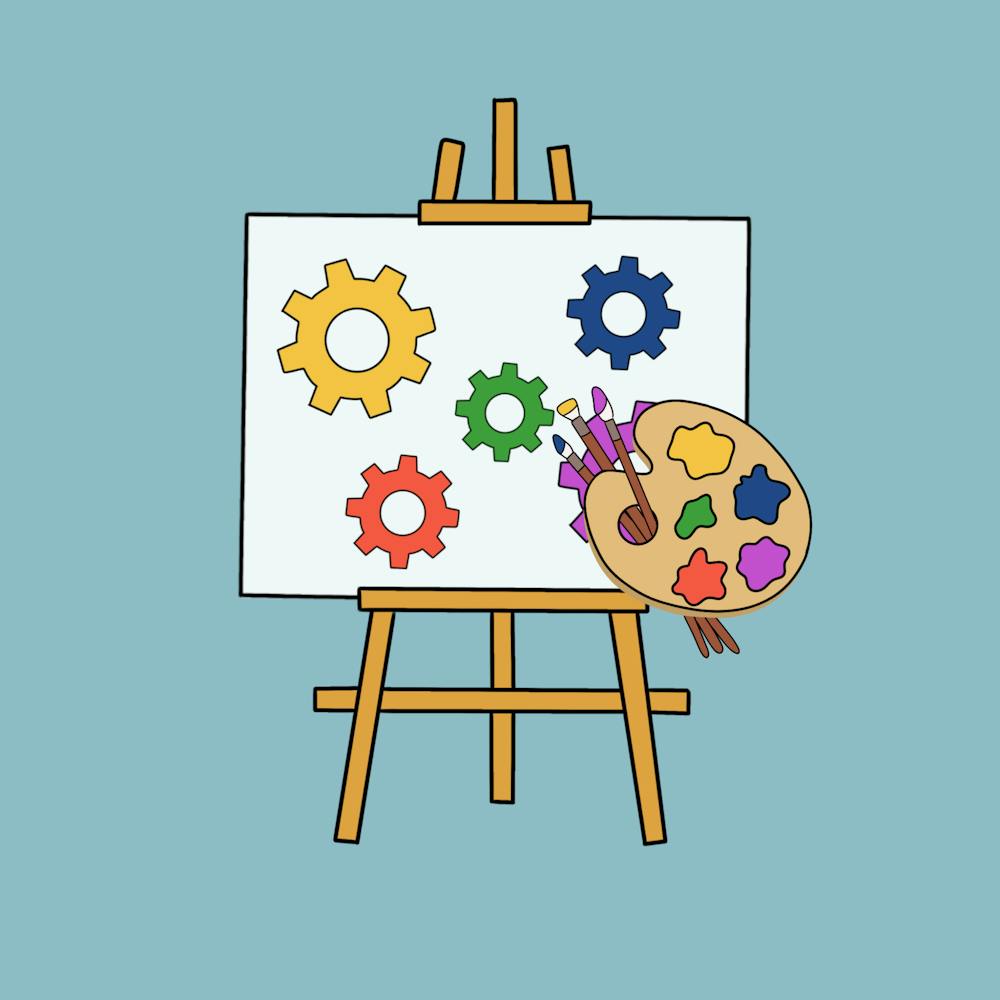Excluding core classes, engineering and liberal arts students at Auburn spend their college years on distinct paths. In a sense, the only commonality between these groups is that they attend the same university. Other than that, however, there is little unity.
This separation leads both sides to the unfortunate misconception that engineering and the arts are incompatible. Nevertheless, these disciplines are intrinsically connected, namely by the fact that they are byproducts of the creative mind, without which neither would exist.
Throughout my experience as an engineering student, I have witnessed my peers ignore and occasionally scorn the arts, regarding them as little more than a trivial hobby. In an introductory philosophy course, for example, one of my tablemates, an engineer, told a neighboring creative writing student that he found poetry—which was one of her passions—“pointless.”
More than just abrasive, this assertion was short-sighted. I have encountered similar criticisms over the past three years, but they all more or less share the same sentiment, that science somehow reigns superior.
This belief unravels when examined through a broader lens.
All scientists (perhaps subconsciously) choose their profession for the same reason; they believe that science is worth doing. Though the specifics of this view vary per individual, it generally boils down to the conviction that humanity deserves to be improved. And humanity deserves to be improved because people find meaning in life, despite its cruelty.
But what has given humanity meaning since its beginning? The arts.
From prehistoric cave paintings to modern philosophy, literature and poetry, art has pervaded all of human history, seemingly more than anything else. Considering this, it is foolish to deny that we have an innate proclivity for artistic creation, which appears to take precedence over our proclivity for the sciences.
Therefore, science, including engineering, is worth doing because of our relentless desire to live, which has always been fueled by the arts. Without the development of art, science itself could have easily turned out to be “pointless.”
More practically, exploring the arts is an exercise in creativity, which is unrestricted by the rigid constraints of science. To determine the meaning of an allegorical poem, for example, readers must first dissect unconventional diction and syntax that seeks to “express the inexpressible.”
Engineers use this exact kind of reasoning when solving problems. Initially, they are faced with a daunting, almost incomprehensible issue. However, with enough effort, they are able to find a solution using their strong understanding of science, in the same way that readers use their understanding of English and human nature to uncover the underlying message of a poem.
If engineers took some time to grapple with the symbolic and philosophical themes found in art, real-world problems might become a little less intimidating.
Last, and perhaps most important, art offers insight into the human condition that science simply cannot provide.
Physics is unable to explain consciousness. Neuroscience cannot determine an individual’s personality given their brain structure. Psychology can tell us how people tend to think, but it fails to tell us why they think in such a manner.
On the other hand, effective art can accurately portray even the most ineffable human experiences. Without including a single word, Edvard Munch’s famous painting The Scream captures existential dread with poignant precision.
Though art may fail to explain the physical world, it does something as, if not more important; it allows us to make sense of being human.
Where science ends art begins, and vice versa. Both should be accepted as indispensable to modern society, not pitted against each other as opposing forces. Engineers, you don’t have to like art, and if you wish, you don’t have to approach it at all. However, if you think art is useless, you should reconsider.
Do you like this story? The Plainsman doesn't accept money from tuition or student fees, and we don't charge a subscription fee. But you can donate to support The Plainsman.





